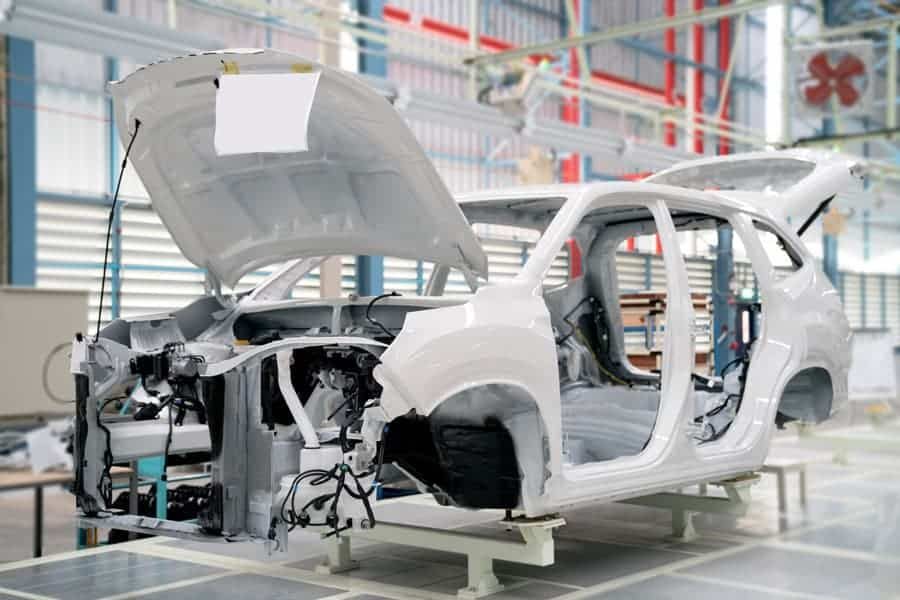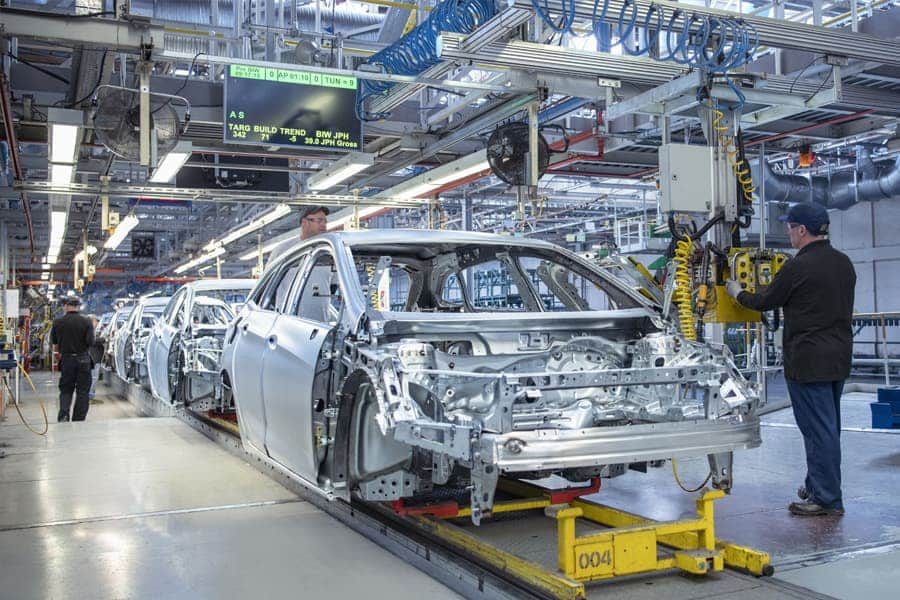Steel is a metal that is widely used in engineering. There are many different alloys that can be used for a variety of applications across industries. One such area is the automotive industry, which offers many applications for steel alloys as they are used in a variety of different components in vehicles.
In order to comply with strict specifications from pollution control agencies and safety groups, the automotive industry has been doing its best to improve the strength: weight ratio. It is therefore not surprising to see the automotive industry move towards the efficient use of stainless steel to achieve its intended goals. Stainless steel has excellent corrosion resistance and very desirable mechanical properties and has become one of the main structural materials in the automotive industry.
With increasing demands for safety, strength, efficiency, performance, and lightweight, stainless steel has gradually entered the forefront of automotive design. In terms of safety features, stainless steel is also gradually gaining the spotlight as it is durable, efficient, and cost-effective.

How is steel used in the automotive industry?
All in all, the automotive industry uses stainless steel for two things – the durability of the material and the quality it provides. Stainless steel will become increasingly prominent as the automotive industry demands a combination of strength, efficiency, performance, and portability. Below are some applications of stainless steel in the automotive industry.
Lightweight Integrated Components
Stainless steel is known for its lightweight. For some, stainless steel is the material of choice when it comes to saving weight while still being as strong as other materials. A car, this feature makes it ideal for some of the most important parts of a car: the fuel tank, the chassis, and even the bumper.
Although rarely mentioned, small parts such as the tubes, brackets, springs, clamps, flanges, and many other tiny parts that support the vehicle, connect parts, and make up the structure of the car are made of stainless steel.
Car Frame
Stainless steel combines durability, ductility, and car frames made from stainless steel show the same strength as many other metal alloys with the added benefit of being lighter than other alloys. When you use stainless steel, you get a strong, lightweight frame that can be considered one of the best supports a vehicle can possibly have.
When testing one of the austenitic stainless steel grades, it was found that the rate of hardening of the material depends on the rate of deformation. When it comes to automobiles, stainless steel can absorb more force than common structural steel that is widely used. This ensures that the use of a stainless steel frame can significantly improve passenger safety.
Corrosion Resistant Parts
Any vehicle is prone to getting dirty, both inside and outside its systems. Dirt roads, puddles, and unpredictable rainfall are almost always part of your daily commute. Vehicles need to be designed to resist this corrosion – that’s where stainless steel comes in.
In addition to being durable, stainless steel is also highly resistant to corrosion, making it one of the best materials for auto parts like exhaust systems that are often prone to corrosion. Currently, stainless steel makes up about 50% of all exhaust systems manufactured, which is a testament to its amazing performance.
Apart from the exhaust system, the other parts most susceptible to contamination are the wheels, the main visual structures, and the lower part of the car. Of course, these parts can also be made of stainless steel. Today, stainless steel is rarely used for these parts. But when they do, it’s because manufacturers aim to deliver higher-quality cars that deliver superior performance.
Visual Design And Appeal
The visual effect of stainless steel often sets it apart compared to other steel and metal alloys. In its most polished state, it can greatly enhance the appearance of a modern vehicle. In a world where physicality and visual appeal are very important, this visual improvement can mean a lot.
Of course, stainless steel not only provides visual appeal, but it also provides durability, corrosion resistance, and versatility! Stainless steel has the power to improve an otherwise perfect product.

Benefits of using steel in the automotive industry
- Contains recycled steel and is endlessly recyclable.
- Has lower CO2 life cycle emissions than any other automotive material.
- Enables engineering of crash-resistant structures.
- High-strength steels enable light but stronger vehicles.
- Lightweight therefore fuel efficient.
- Durable and remanufacture-friendly.
- Enables creative, flexible designs.
- Enables affordable repairs.
- Cost efficient compared to other materials.
- Well-established manufacturing and recycling infrastructure and workforce.
Get Solutions
Popular for its exceptional strength, corrosion resistance, and machinability, stainless steel has become a staple in the metals industry. Also to a complete inventory of virtually all shapes, sizes, and grades, China Tisco also offers custom stainless steel supply chain solutions and is able to deliver products to each customer’s exact specifications. Contact us to get a custom stainless steel supply chain solution!
